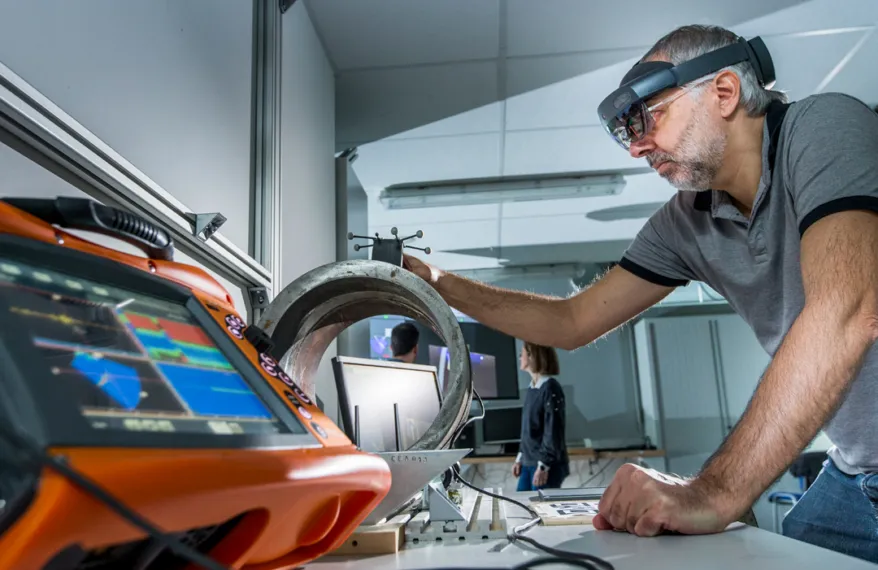
Our research programs, which focus on mitigating the environmental impacts of digital and on supporting French and European sovereignty, are designed to respond to the needs of the companies that partner with us. We strive to ensure that our programs keep pace with each scientific advance and adapt to a changing environment. Our researchers chart the technological course that guides the development of our ecosystem around ambitious projects and major infrastructure.
Our long-term vision of research translates into close cooperation with the academic community in leading France’s national cloud, AI, and cybersecurity priority research programs and in the quest to overcome the scientific and technological barriers to quantum computing. We also run bold, high-risk research projects integrating approaches to cybersecurity addressing both hardware and software, the orchestration of distributed systems, generative AI for robotics, AI hardware accelerators, advanced instrumentation, and non-destructive testing.
Our mission of transferring new technologies to the market also includes monitoring and analyzing emerging needs and key challenges for applications in industries like defense, digital health, nuclear, and the factory of the future. Our eco-innovation activities, discussed in the chapter “Supporting societal transitions” of this report, support this mission. Together, these multiple perspectives create a fertile environment for synergies and cross-disciplinary cooperation between our teams and ensure our most innovative research is connected to the concrete and immediate needs of industry. This chapter outlines our four research themes and zooms in on a selection of outstanding results. The following chapter is more centered on industrial innovations with additional examples.
This research, which aims to speed up the development of reliable digital systems, is fundamental to the digital transition. Specifically, we are addressing software and complex systems engineering tools; safety and security assessment; and reliability, with approaches that integrate hardware behavior. Precise modeling of software and systems architectures and their functional behaviors supports our research in this area. The resulting functional digital twins can accurately simulate complex systems and their software. Ultimately, these digital twins will make optimization and testing more efficient and provide formal proof of key safety and security properties.
AI, which plays a vital role in many innovations, raises important questions around trustworthiness and frugality. Appropriate machine learning methods and algorithms will need to be developed, as will reliable theoretical frameworks for analysis. With the advent of large-scale foundation models like generative AI and their many potential uses, we must circle back to these issues now if we are to promote responsible machine learning that integrates this technological aspect of AI—and explore new use cases.
The edge-to-cloud computing continuum raises multiple questions around hardware and software architectures and computing models. The most pressing challenges concern how to make more frugal systems also capable of delivering very high performance for cloud infrastructure, mid-level servers, systems, and sensors at the network edge. The pace of advances in quantum computing is also accelerating, highlighting a host of new challenges related to both programming qubits and evaluating technologies.
Innovation in industrial systems and processes depends on data capture and processing. This requires the integration of instrumentation and advanced algorithms to form unbroken digital chains from sensor to system-level control. We are addressing challenges in sensor and sensor system design, signal processing—both as close to the source as possible and at the other end of the continuum, where higher-level control takes place.And, as the factory of the future takes shape, advanced robotics will be more efficiently and seamlessly integrated into systems. Here, the challenges will revolve around controlling human-machine interactions and machine-machine cooperation. The solutions will depend on advances at the crossroads between robotics, systems engineering, digital twins, and AI.